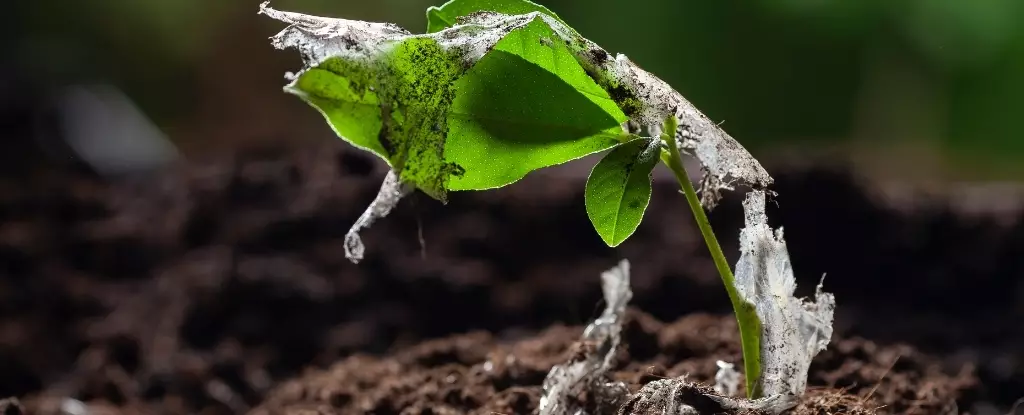In a startling revelation, a substantial body of research illustrates how microplastics—tiny remnants of the ubiquitous plastic waste that permeates our environment—are infiltrating agricultural soils. Researchers led by environmental biotechnologist Joseph Boctor at Murdoch University unearthed alarming statistics: Europe and North America are inundated with hundreds of thousands of tonnes of these toxic particles annually. This insidious infiltration is not merely an environmental concern; it directly affects our food systems and, consequently, our health. As microplastics are absorbed into crops like lettuce and carrots, they make their way to our dinner plates, entwining the fabric of our nutritional landscape with the very fabric of plastic.
The Consequences of Plastic Farming Techniques
Plastic mulching, a technique promoted for its efficiency in maximizing crop yield and conserving water, paradoxically emerges as one of the leading culprits in the microplastic epidemic plaguing our farmlands. Farmers, rewarded with immediate improvements in productivity, may unknowingly be laying the groundwork for long-term ecological and health crises. This ongoing trade-off between short-term agricultural success and long-term sustainability raises serious ethical questions. Is the immediate benefit to crop yields worth the long-term degradation of our soils and food quality? As plastic debris slowly transforms fertile lands into plastic wastelands, we must critically assess our agricultural practices and their ramifications.
The Harrowing Journey of Microplastics
Microplastics infiltrate agricultural environments through various channels, including fertilizers, biosolids, and organic materials. This extensive review not only highlights the alarming volume of these pollutants but also delves into the mechanics of plant interaction with microplastics. Through cellular processes like endocytosis or direct absorption from the atmosphere, these foreign particles make their way into plants, raising profound concerns about the implications for human consumption. The very systems that have been designed to sustain life are, paradoxically, becoming conduits for harmful substances.
The Health Risks We Can No Longer Ignore
Diving into the potential health impacts, the evidence becomes increasingly unsettling. Microplastics, with their capacity to evade traditional detoxification mechanisms in our bodies, are linked to a litany of health issues. From hormone disruptions and reproductive problems to devastating effects on the cardiovascular system and even DNA integrity, these tiny particles are complicit in a broader deterioration of human health. Particularly alarming is research suggesting transference from mother to child through the placenta—what does it mean for the next generation that they may inherit not just our genes but also plastic burdens?
A Call for Transparency and Action
Boctor’s passionate call for increased transparency and regulatory oversight stands out as a clarion call for urgent reform. The plastic crisis, a pervasive yet often overlooked threat, must be confronted head-on. Policymakers and regulatory bodies must be held accountable for allowing this ecological and health hazard to remain unchecked. The consequences of inaction are dire; our society may well face the profound implications of compromised food safety and declining public health.
Challenging the Status Quo
At the heart of this crisis is a broader question of values—what kind of society are we nurturing? One that prioritizes convenience and short-term gain over ecological integrity and health? As citizens, we must demand a reevaluation of agricultural practices, urging a shift towards sustainable methodologies that reject the dependence on plastics. Collective awareness and action are essential to breaking this cycle of contamination and harm, promoting agricultural practices that respect both human health and the ecosystem.
We stand at a pivotal crossroads in our relationship with plastics and agriculture. The consequences of our choices will reverberate for generations. We owe it to ourselves, and to those who will come after us, to confront this threat with diligence and resolve. The time for action is now, for the stakes have never been higher.


Leave a Reply